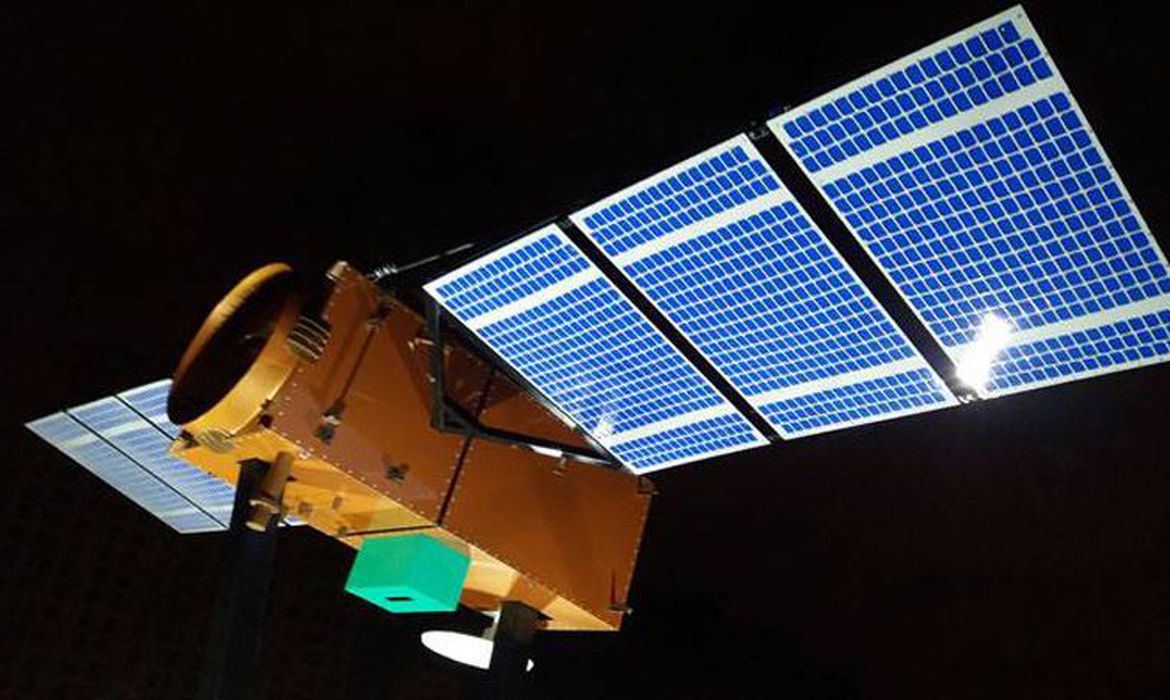RIO DE JANEIRO, BRAZIL – Emirates SkyCargo, the freight division of Emirates airline has successfully executed a cargo charter to transport the Brazilian satellite Amazonia-1 from São José dos Campos, Brazil to Chennai, India. This is the first time that Emirates SkyCargo has transported a space satellite from South America.

Amazonia-1 is the first satellite to have been developed completely in Brazil by the National Institute for Space Research (INPE), Brazil’s leading entity dedicated to space research and exploration.
The satellite took eight years to be developed and, once launched into space, will help monitor the ecosystem of the Amazon rainforest. The satellite is due to be sent to space in February 2021 from the Satish Dhawan Space Centre on the East coast of India. This rocket launch centre (spaceport) is operated by Indian Space Research Organisation (ISRO)
The cargo carrier had to undertake extensive preparations for this charter flight to ensure the safe and secure transport of the satellite. It had to apply for special permission to operate a Boeing 777 freighter from São José dos Campos airport to uplift the satellite.
Emirates SkyCargo together with INPE, the airport and local partners, conducted two comprehensive simulation sessions ahead of the transport date, to be able to transport the sensitive cargo safely from the airport.
During the transportation process, the Amazonia-1 satellite was dismantled into multiple components to facilitate easy loading and unloading from the aircraft. The satellite components were packed inside large containers to avoid any damage during the transport.
Overall, the total cargo weighed around 22 tons. Four members of the team from INPE also travelled with the satellite to monitor the status of the cargo during the flight to Dubai and then onwards to Chennai, India.
The Indian Space Research and Research Organisation (ISRO) gets ready to launch Brazil’s Amazonia -1 satellite within the next weeks.
This Brazilian Satellite has been locally designed, assembled and tested in Brazil and will be the first satellite for Earth Observation. It will have a primary payload and will not be a hitch-hiking satellite.
India-Brazil Space Cooperation
At the 6th BRICS Summit in 2014, the two countries –India and Brazil had an agreement signed which talked about setting up a Brazilian earth station to receive data from Indian satellites. For operating the station and gathering data through remote sensing, the Brazilian scientists have been getting training at the ISRO facility.
Space Cooperation between the two countries goes back to the early 2000s when the two had an agreement in place at the Government to Government level, under which the South American nation started receiving data from India’s Resourcesat-1 satellite from October 2009 to September 2013. Since October 2014 Brazil has been receiving data from Resourcesat-2.
At the commercial level, India gets tracking support from ground stations located in Alcântara and Cuiabá, in Brazil. This tracking support is for Indian satellites and other space programmes including Chandrayaan-I, Megha Tropiques, MOM, and ASTROSAT.
Why ISRO for launching satellites?
Several countries have been coming to ISRO for launching their satellite purely because of commercial considerations. South American countries have been reaching out to ISRO through the Indian Missions looking for a commercially feasible launch. Post-MARS mission in 2014, India’s sophisticated and cost-effective programmes attracted big and small countries from across the globe.
Countries like Mexico, Brazil, Argentina, Chile, Colombia, and Bolivia are among some of the countries who have a Space Cooperation agreement with ISRO at a different level. Several others in the region who want to stay away from China have been reaching out for an understanding with ISRO.

